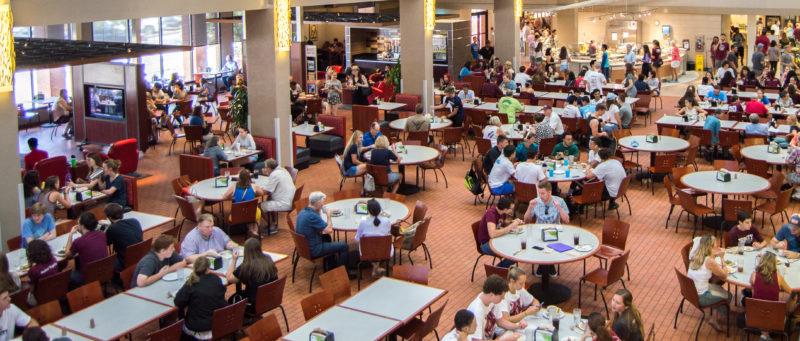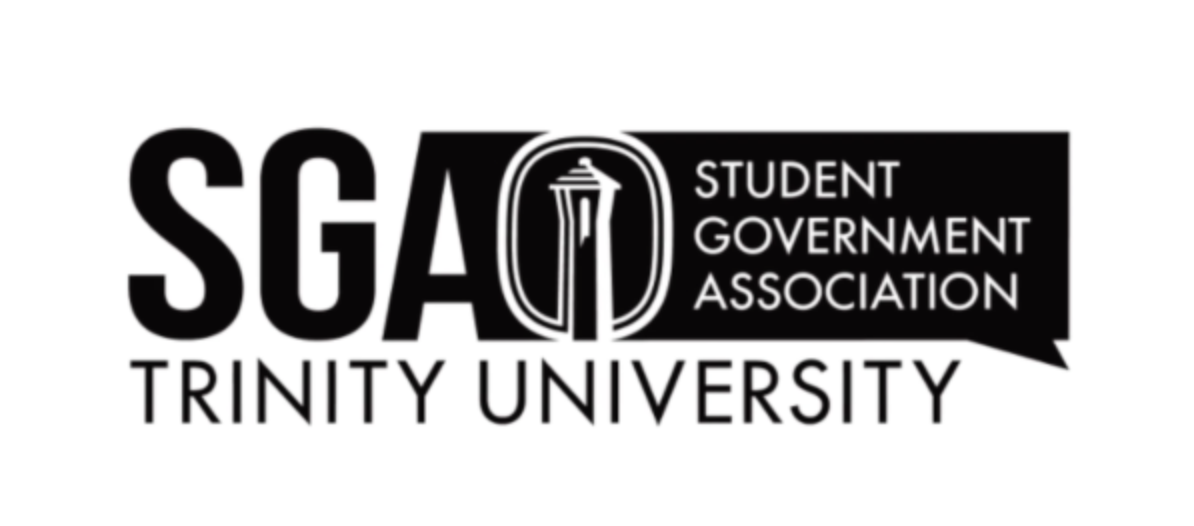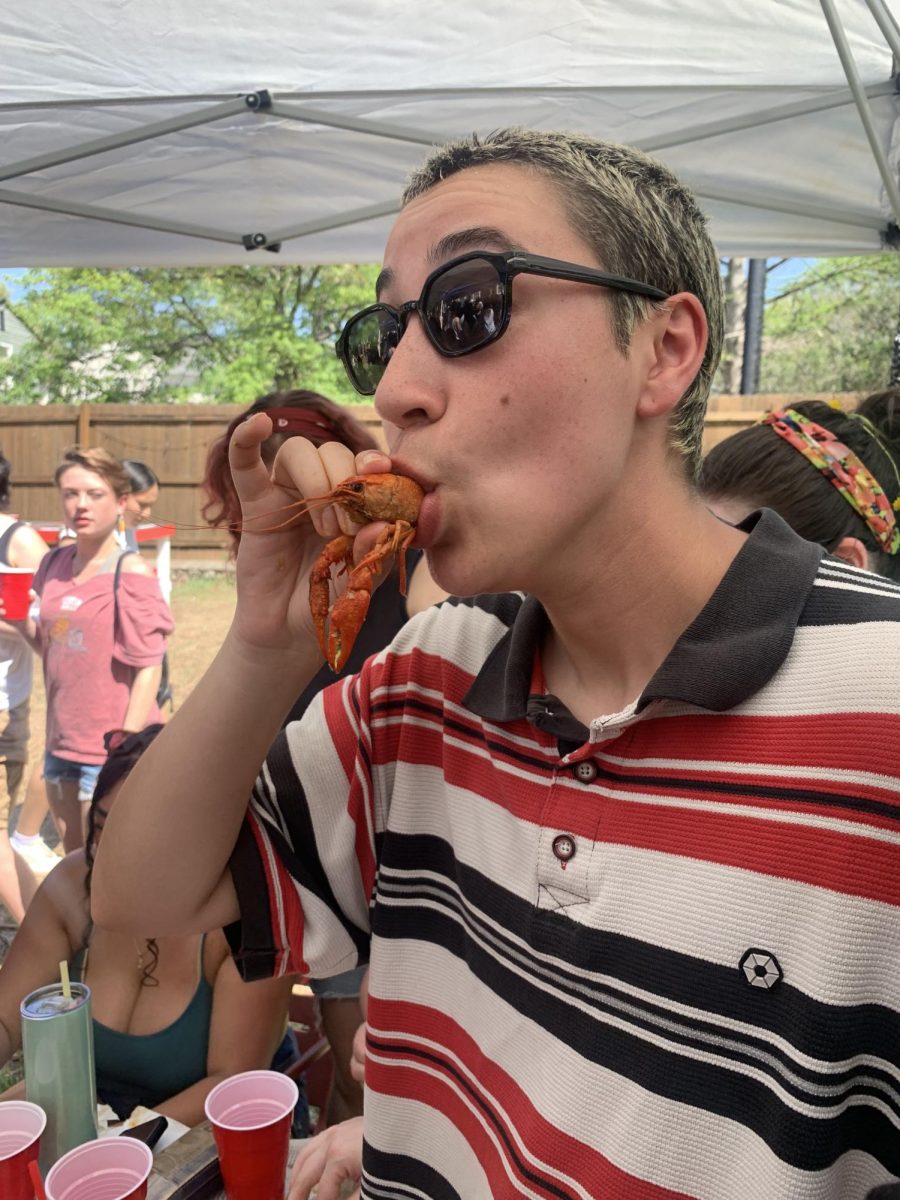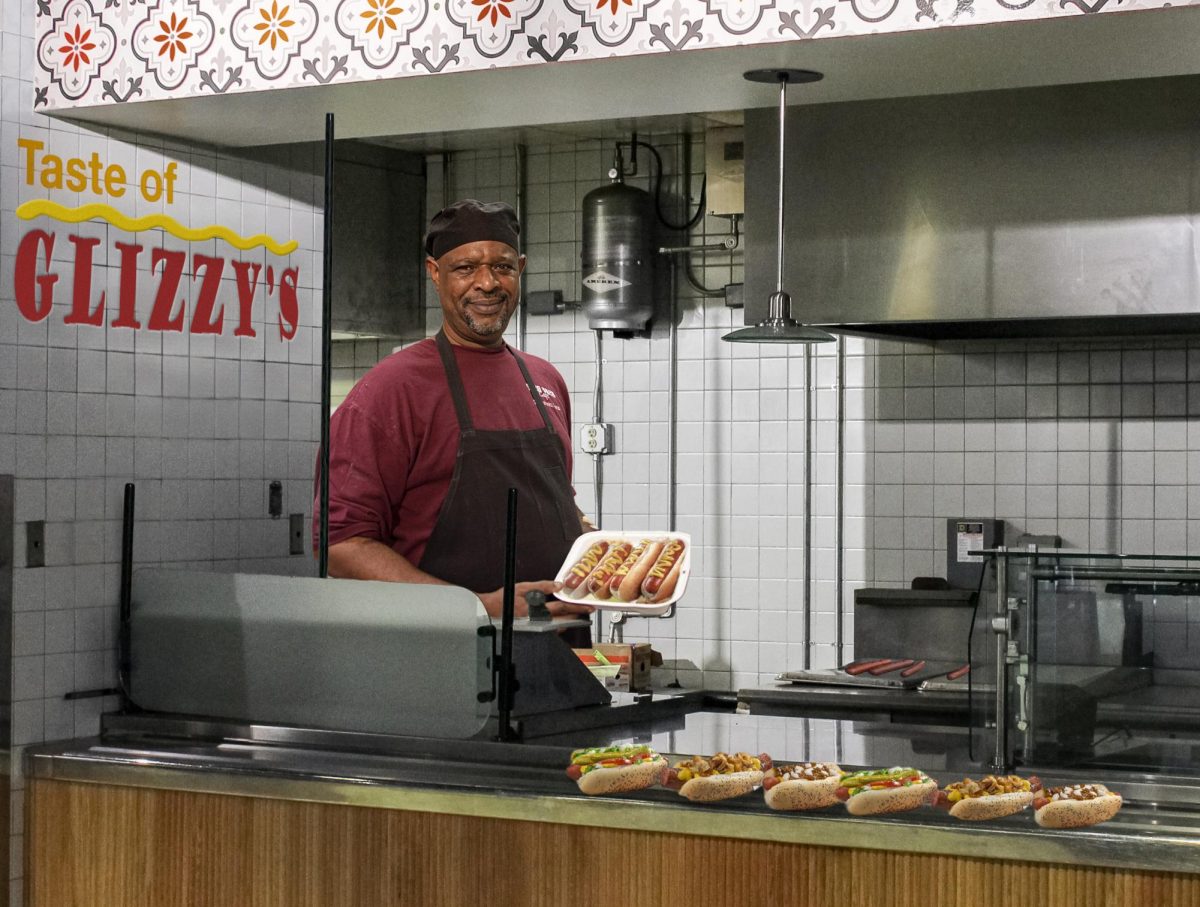Earlier this month, Gary Logan, vice president for finance and administration, sent an email announcement to students, staff and faculty regarding the administration’s efforts to explore different food vendors in the upcoming year. In the email, Logan explained the process of creating a committee to select and recommend a new dining service for the spring semester of 2018.
“Trinity University will launch a request for proposals (RFP) for the selection of Trinity’s Dining Services provider this fall,” Logan wrote in the email.”The Trinity Dining Services RFP process is part of the University’s efforts to implement best practices in its business operations. Trinity will be establishing regular reviews and RFP processes for all its large vendor contracts as part of this practice.”
This RFP is not a guarantee that Trinity will be changing vendors in the future. Rather, this invites other vendors to compete for a contract with the university to replace Aramark, the current dining service provider at Trinity. The committee could choose to continue Aramark’s contract.
“Aramark has been here well over 30 years, a significant amount of time. During that period, we’ve had an evergreen contract with them, which has just been renewed over and over. We’ve not ever looked at any other services or vendors, so as part of the campus master plan, there were several entities looked at ideas looked at, and as a best practice, one of those was to take a look at our contracts and put them out to bid,” said Bruce Bravo, senior director of conferences and auxiliary services. “You always have the option, with proper notice, to take the contract out to bid, which is what we are doing.”
Part of the decision to explore other vendors resulted from the university’s employment of a new consultant, Envision Strategies. This national consulting organization looks specifically at the success of food service operations.
“Envision did a food service review of everything we do at Trinity, as part of the Campus Master Plan. … Dining obviously is a large part of that, and as the Master Plan got some momentum, and everyone realized we weren’t really qualified to look at this objectively. So, Envision was brought in, they audited our entire operations and their study helped to inform recommendations for future campus dining and food options,” Bravo said. “The RFP was based on a variety of that data and the feedback collected during that study. It opened up a lot of doors and possibilities of what this campus could be specific to food.”
In addition to looking at Trinity’s dining services, the university also hopes to look at other schools to compare successes in dining services.
“Our consultant is helping us and taking the lead on aggregating who our contract will be sent out to, and then as responses come in. Then we may go to some of these other schools and see what their operations are like,” said Paul Wright, director of business operations.
This information, along with the offers from Aramark and other vendors, will go through a new committee that was finalized this month. Headed by Wright, the committee has 13 members, including two students, Juan Luevanos and Nat Weikert. Even though this is a highly administrative issue, the university is still largely supporting student involvement in the issue.
“Last fall, when Envision did their study, there were about 1,000 students involved in focus groups and surveys, and so that was part of what our consultant used when she was putting together the RFP. Also, on the committee, there are two students involved, and they’ll definitely have a voice in that decision,” said Diana Heeren, associate vice president for finance. “The committee may, as they’re evaluating the proposals, seek feedback from students, faculty and staff. … It might come down to what students are interested in.”
The committee plans on having a final decision on their choice of vendor by around either January or February, according to Heeren. Once a choice in vendor is made, modifications to on campus dining will start on June 1, 2018. This could include not only changes in Mabee Dining hall, but also drastic changes to the restaurants available in Coates University Center.
“All dining services are through Aramark,” Wright said. “Some degree of change will happen for sure, depending on who the selected vendor is.”
Restaurants like Einstein Bros. Bagels and Taco Taco do not have specific contracts with the university; they all are here as a part of Aramark. Consequently, changing vendors means also changing what restaurants would be available to the university.
However, these changes are likely to occur even if Aramark remains Trinity’s food vendor.
“The exciting part of this is that we’ll open this up to five or six vendors and they’ll give us the best of what we’ll offer, and then we’ll narrow that down to what we think are the best,” Bravo said. “We think Java City has run its course. … I wouldn’t say definitely, but that’s an opportunity for Aramark or another vendor; there will be a proposal for something else. I know this because Java City is no longer viable with Aramark; they have different coffee vendors that they contract with.”
For those interested in learning about the process, Trinity now has a website dedicated to information about the committee, including a list of its members and a timeline of its goals.







